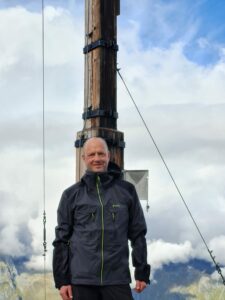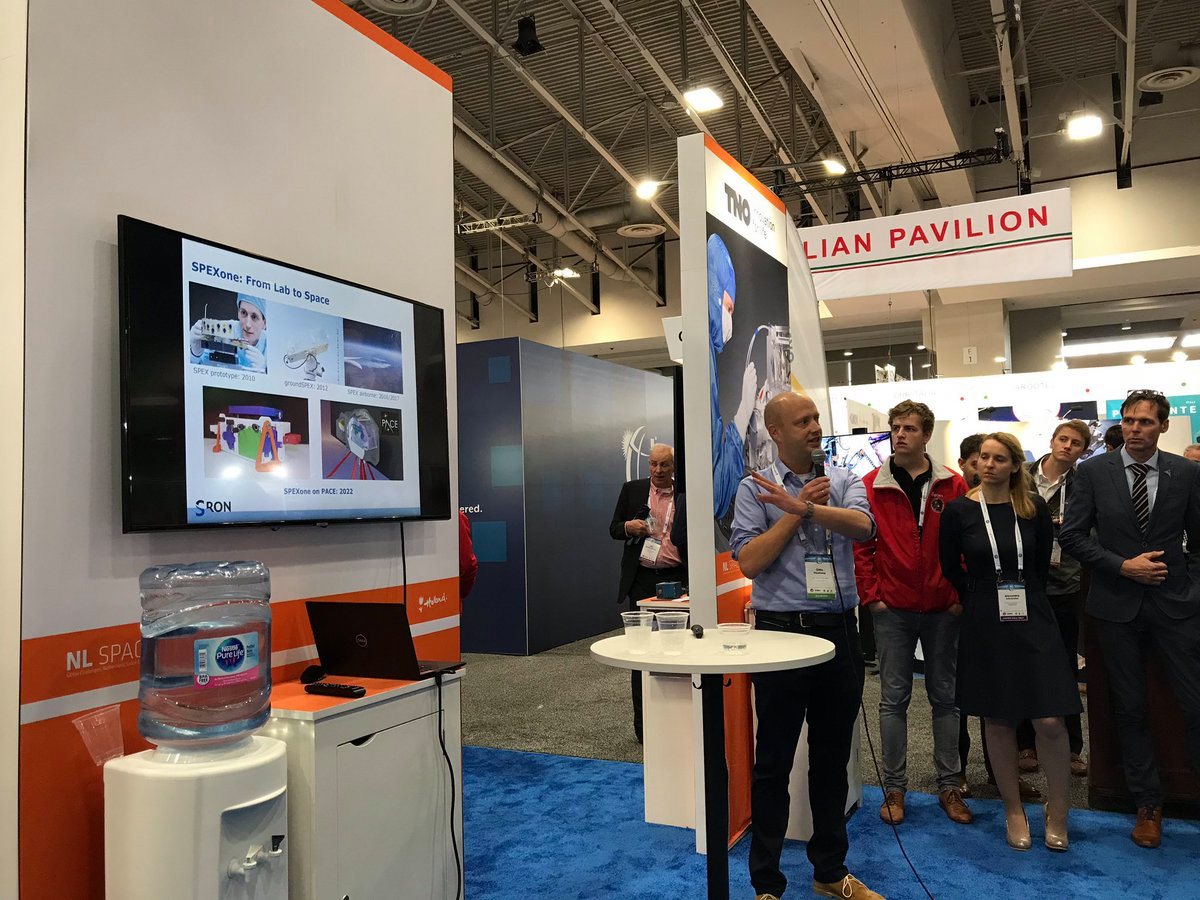Otto Hasekamp is a senior scientist at the Netherlands Institute for Space Research (SRON) and is the science lead for the SPEXOne polarimeter that will be on PACE.
What is your favorite atmospheric or oceanic related book or movie?
It’s not a book, but my favorite bit of writing about the atmosphere is actually a review article from 1974 – the year I was born! – on light scattering by atmospheric particles. It’s something that I’ve come back to through my whole career. It was written by Jim Hansen and Larry Travis from NASA’s Goddard Institute for Space Studies in New York, and is sort of the cornerstone for polarimetry.
What are you most looking forward to during launch?
I’m really excited to see the satellite go up and then get the notification that everything has gone right with the satellite. It will really be a relief, and I’m looking forward to that green light.
What are you most looking forward to post-launch?
The commissioning phase where we check all the measurements and the instrument will be an exciting and intense period. I’m really looking forward to the first measurements of SPEXOne. On the somewhat longer term I look forward for our team to first real science results, that improve our understanding of aerosols and clouds.
What is your favorite color and why?
My favorite color is blue. Why? Well, of course when the sky is really clear it shows up very blue and I think that’s a great thing to look at.

Do you have a favorite type of cloud or atmospheric phenomenon?
The very, very thick clouds when there’s a thunderstorm coming that are sort of scary to see. It gives a special atmosphere.
What’s a fun fact about yourself, something that people might not know about you?
I like hiking in the mountains. Every year, for 25 years, I go hiking in the mountains with friends of mine and we hope to continue to do that for a long time. I’ve also crossed the Arctic Circle.
What advice would you give to aspiring scientists who are looking to get to where you are today?
Persist. Accept that things go slowly but persist and you will get where you want to be. I think that is maybe the most important one. Keep in mind the impacts of what you do, that’s another important one.
What is one catch-all statement describing the importance of SPEXOne?
It will help the understanding of the cooling effect that fine particulate matter has on the climate.
Header image caption: Otto Hasekamp presenting SPEXone at the International Astronautical Congress (IAC) conference, Washington, D.C., October 2019. Courtesy of Otto Hasekamp
By Erica McNamee, Science Writer at NASA’s Goddard Space Flight Center

